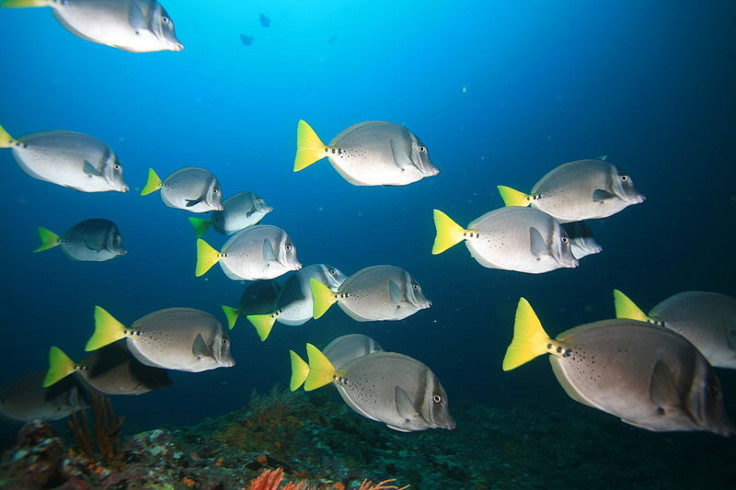Warmer Oceans Make Fish Lazy, Global Warming Could Have ‘Major Impact’ On Reproduction

According to a 2012 study of global water temperatures, nearly 90 percent of the excess heat added to the Earth’s climate since the 1960s has gone straight into the oceans. Average surface temperatures have risen 1.1 degrees Fahrenheit, and increased water temperatures were recorded even at depths of 2,950 feet. Now, scientists studying the effects of warmer waters on fish populations have found that warmer oceans are making fish more lethargic, which is likely to affect their ability to catch food or reproduce.
New research from from James Cook University in Queensland, Australia, is giving us a better idea of what our oceans could look like over the coming decades as our waters continue to warm.
“Global warming may reduce the swimming ability of many fish species, and have major impacts on their ability to grow and reproduce,” Jacob Johansen, one of the researchers from James Cook who studied the effects on warmer oceans on fish, said in a statement. “The loss of swimming performance and reduced ability to maintain important activities, like moving to a spawning site to reproduce, could have major implications for the future distribution and abundance of these species.”
Scientists looked specifically at the effects of warmer waters on coral trout, a species of fish native to the western Pacific and one that is big business for Australian fisheries. Researchers kept the trout in an environment slightly warmer than the one they’re use to. They noticed that in warmer waters, the fish preferred to rest on the bottom and showed signs of lethargy. According to the report, the fish spent less time swimming around or searching for opportunities to mate.
Over the past century, global water temperatures have risen 1 degree Fahrenheit on average. According to National Geographic, the warmest surface temperatures ever recorded were in 1998, 2005 and 2007.
"Fish are cold-blooded and the way their body works depends on ambient temperatures, so obviously global warming and ocean warming has potential to impact these fish," Johansen told Australia Network News. "When it becomes too hot for these guys they become very lethargic, they don't spend much time in activities... and when they finally do get up from the 'couch'... they swim around much more slowly.”
Researchers did note that trout populations from the northern region of the Great Barrier Reef were better at tolerating the warmer temperatures than fish from the south. This could mean the trout will find ways to adapt to a warming aquatic environment, most likely by relocating to cooler waters.
© Copyright IBTimes 2024. All rights reserved.












